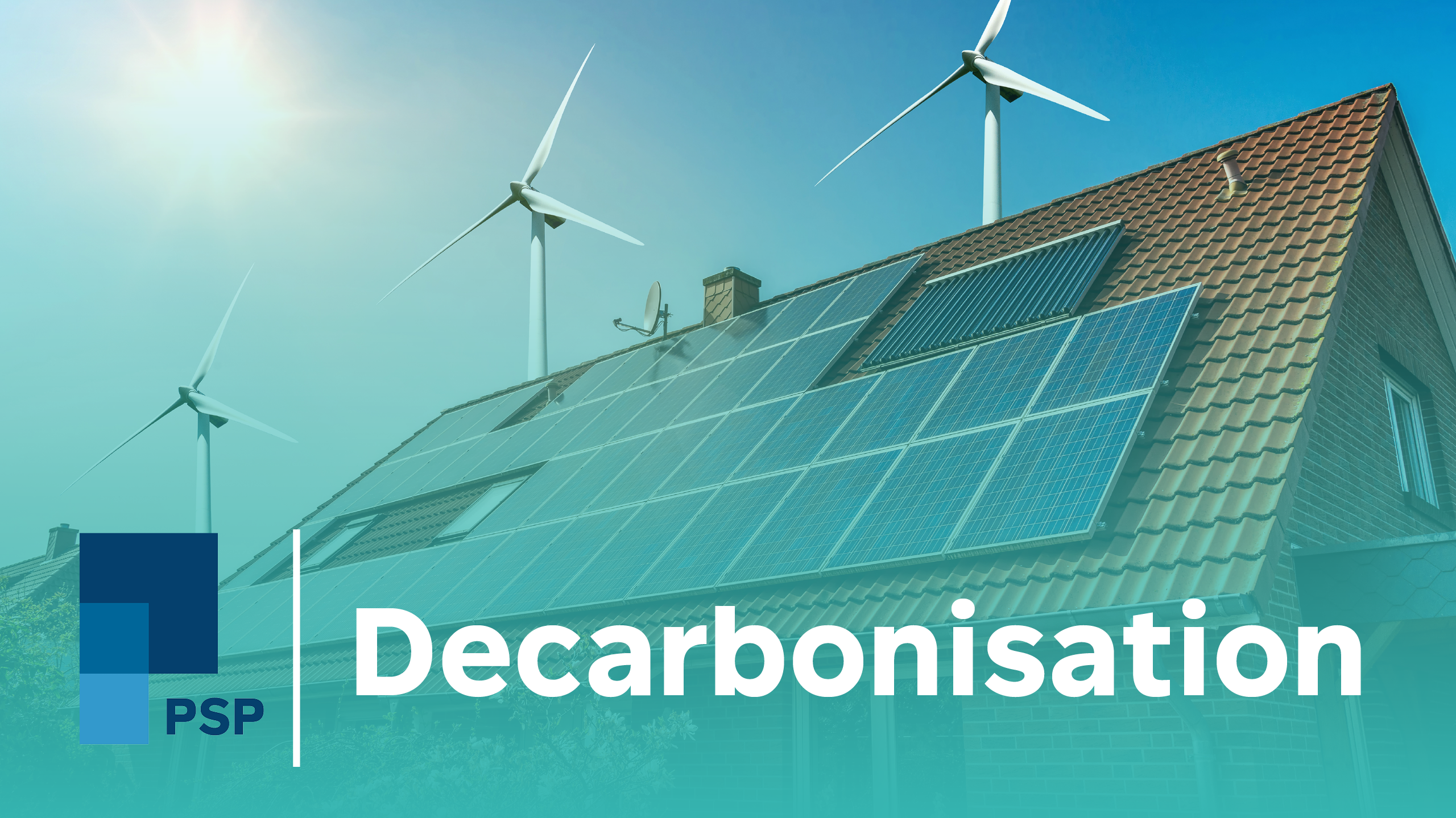Climate change is today’s most significant environmental challenge. But creating a sustainable and efficient framework to reduce carbon dioxide (CO2) emissions requires both sweeping change and incremental steps from every sector and every industry.
At this point, ‘decarbonisation’ is no longer just a buzzword to be ignored — full decarbonisation is the only solution to stabilise our climate. But what does it really mean?
The goal of decarbonisation is simple: to limit CO2 emissions worldwide as soon as possible.
Although numerous greenhouse gases contribute to global warming, CO2 is the most prevalent, with average global carbon dioxide levels reaching an all-time high of 414.72 parts per million in 2021.
But a wide range of sectors — from residential to commercial and industrial — runs primarily on fossil fuels, contributing significantly to carbon emissions.
Around 26% of UK greenhouse emissions are estimated to come from housing, with the built environment contributing to 40% of the UK’s total carbon footprint.
Current construction methods contribute significantly to carbon emissions during the construction process. Concrete alone is responsible for 8% of global carbon emissions (if it were a country, it would be the third-largest emitter of carbon after the US and China, releasing 2.8 billion tonnes of carbon every year).
So, how do we decarbonise the housing sector?
Building back better
The UK government wants all new homes to have at least a C-band Energy Performance Certificate (EPC) by 2035.
In a recent survey conducted by Public Sector Plc (PSP) — a property services partner and consultant to the public sector — it was discovered that five in 10 respondents are planning on developing new zero-carbon housing developments in 2022/2023.
However, cost, policy uncertainty and the logistics of delivering at both scale and pace (the government has set a target of building 300,000 new homes a year in England) create a difficult landscape for councils and housing associations that makes these targets seem out of reach.
To achieve these targets and build not only better and more sustainable new homes but also affordable homes, modern methods of construction (such as offsite modular construction) will be crucial.
One of the most energy-efficient housing schemes in the country — a zero-carbon housing development of six high-quality family homes for rent — was built in a factory in Cambridge using offsite manufacturing methods.
Delivered by PSP in partnership with award-winning offsite manufacturer NetZero Buildings, these homes are able to achieve carbon neutrality thanks to their well-insulated air-tight walls, photovoltaic solar roof panels and air source heat pump.
Traditionally built homes require more energy to heat, contributing significantly to carbon emissions during occupation. But each of these new all-electric modular homes in Sittingbourne will generate more energy than it consumes, and the monthly energy bill for a three-bedroom family home will be as little as £40 per month.
These modern construction methods provide a unique and innovative solution that can be replicated for future housing projects by local councils and housing associations across the country. More importantly, this construction approach demonstrates measurable benefits, such as speed of delivery, material savings and embodied carbon — an essential factor as the industry focuses on construction impacts and building a zero-carbon future.
Retrofit solutions
As well as building better new homes, improving the energy efficiency of existing housing stock is also a crucial step toward decarbonisation.
This is where retrofitting comes in.
Retrofitting can range from smaller projects such as fitting energy-efficient light bulbs to installing state-of-the-art heating systems. By fitting new systems designed for high energy efficiency and low energy consumption to buildings previously built without them, these existing homes will be cheaper to run, have a lower impact on the environment and produce a higher energy rating that can increase the property’s value.
Housing efficiency is one of the major ways to reduce carbon. With a broad spectrum of methods to sustainably retrofit domestic properties, including solar panels, smart meters and sustainable water systems, councils and housing associations can increase their chance of meeting decarbonisation targets whilst at the same time helping to reduce fuel poverty and create healthier homes.
Local council and housing associations have a vital part to play in the government’s decarbonisation targets — and they are eager to deliver, supporting the wider housing and built environment sector in the global issue of climate change. By pooling resources with consultancy partners to access funding and maximise procurement potential, these sectors will have the opportunity to contribute to the decarbonisation of homes across the country — developing a new generation of low-carbon homes that offer a win-win for local authorities, taxpayers, local residents and, ultimately, the environment.
PSP is committed to a net-zero future, with a goal to be carbon neutral by 2023. Our development management services provide end-to-end support for public sector bodies to develop new affordable low-energy homes. To find out how we can partner with you to develop your next zero-carbon housing project, contact hello@publicsectorplc.com.
